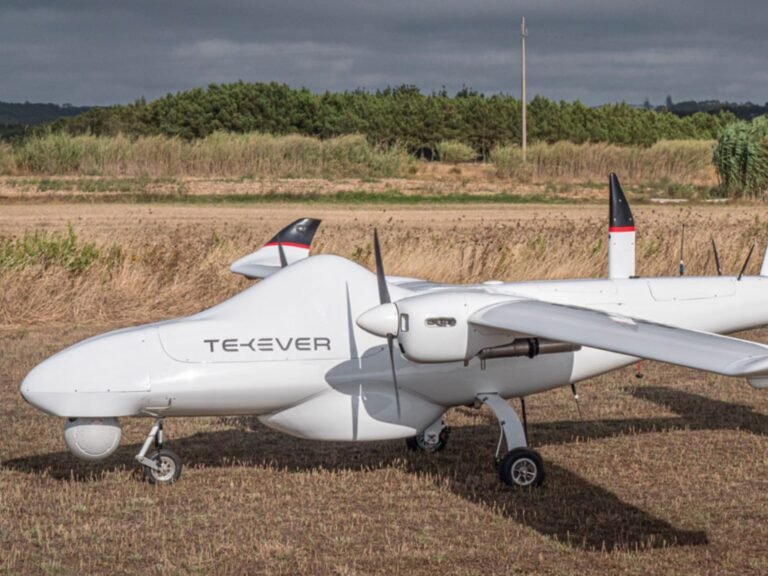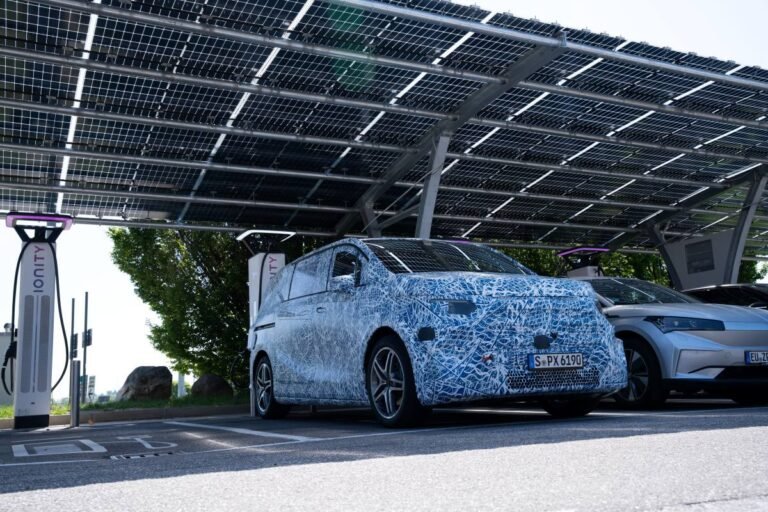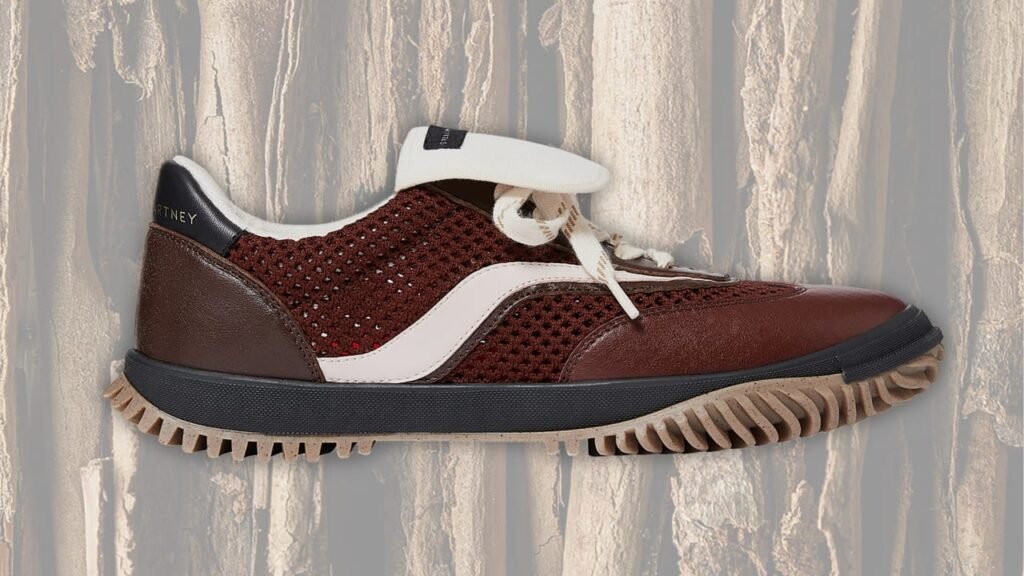
If you pick up a pair of the newest sneakers from Stella McCartney, you might notice something unusual: The soles smell like cinnamon.
That’s because they’re dyed with cinnamon waste rather than synthetic coloring—one of the ways the soles were designed to be as sustainable as possible. They’re also made from other plant-based components like castor beans. When the sneakers wear out, the soles can either be composted or recycled.
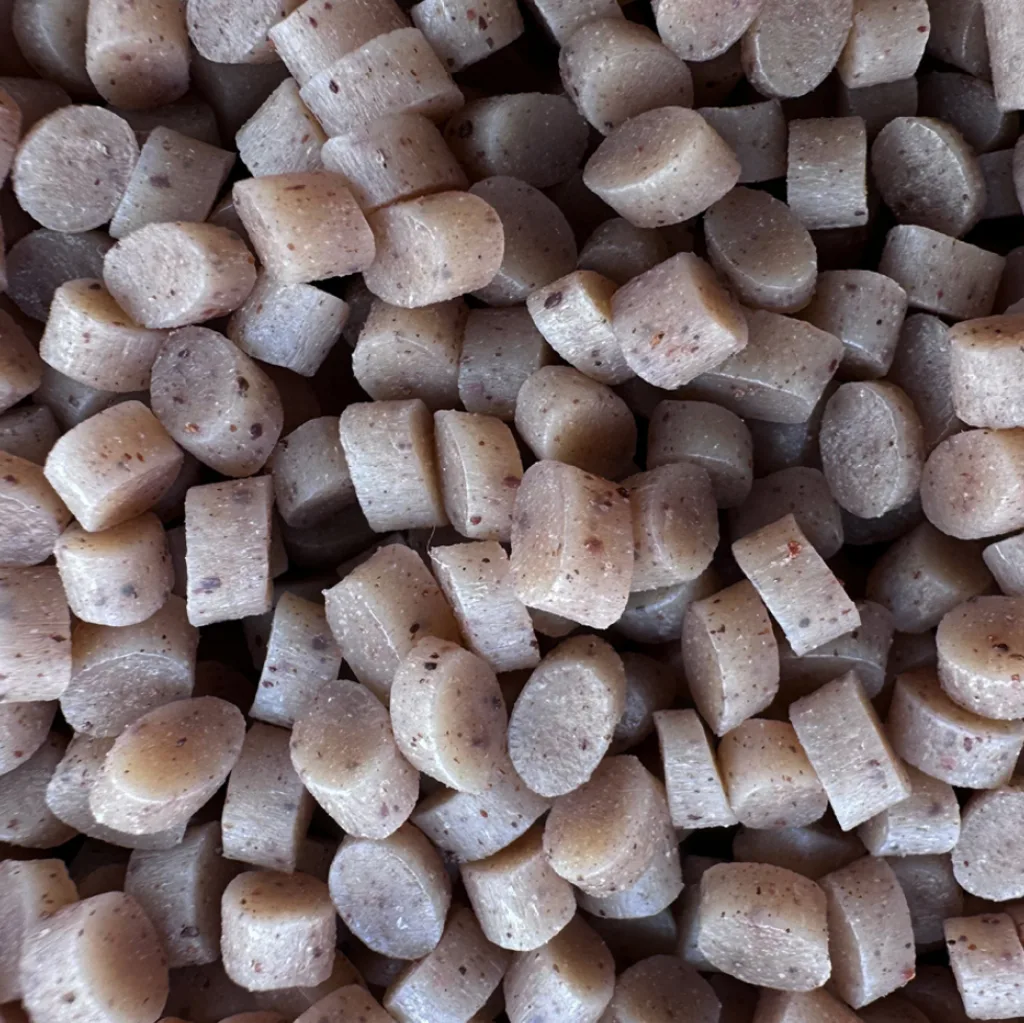
For the brand, the sole was the missing piece in making a circular product. A previous version of the sneaker, which came out in 2022, used materials like grape-based leather in the shoe’s upper and recycled TPU—a type of plastic—in the sole. But that wasn’t a complete solution.
The fossil-fuel-based plastics in typical soles, like TPU or EVA, have multiple sustainability challenges. They’re energy-intensive to produce, and rarely recycled. When they end up in a landfill, the material can last hundreds of years. Even if a particular shoe uses recycled material, it can break down and create microplastic pollution when you walk or run.
To find an alternative, Stella McCartney’s team partnered with Balena, a materials science startup focused on biopolymers.
“The real hurdle was how to match the durability and flexibility of traditional fossil-based plastics . . . using a bio-based material that could also break down at end of life,” says Yael Vantu, head of product at Balena, which is based in Tel Aviv, Israel, and Milan. “That balance of true compostability without sacrificing performance simply hadn’t been cracked yet. Most biodegradable materials on the market just aren’t built to handle the stress, abrasion, and longevity needed in a sneaker sole. That’s where our material came in.”
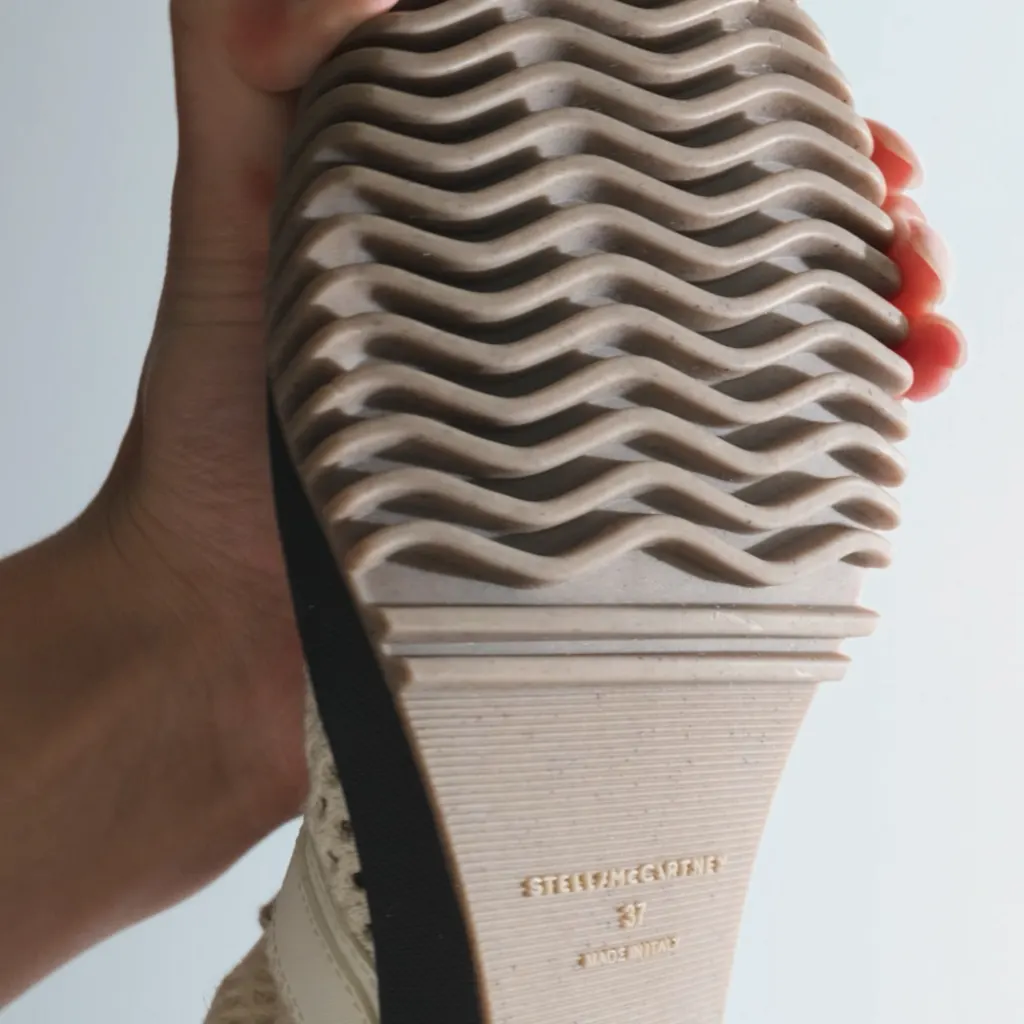
The startup engineered a new product, called BioCir Flex, designed to have the same comfort and resilience as conventional plastic, but with the ability to either be composted in an industrial facility or recycled. “Essentially, we created a material that behaves like plastic when you need it, and like nature when you’re done with it,” Vantu says.
Balena had already started working on the material before the partnership with Stella McCartney, but then spent two years working with the designer label to go through multiple rounds of development, from lab tests to real-world production runs.
The white version of the new sneaker, the $550 S-Wave, uses a mix of hemp and agricultural waste from the pineapple industry in the shoe’s upper. When the shoe wears out, it can be sent back to Stella McCartney. The company will then separate the components. While the soles can be composted, the brand priority is to recycle the material into new soles, so it can avoid the environmental footprint of making the material again from scratch.
The material is still more expensive than standard TPU, both because bio-based manufacturing and circular supply chains are still maturing. Some brands, like Stella McCartney, are willing to foot the higher bill. “They see the value in future-proofing against regulations, reducing environmental risks, and building deeper connections with consumers who expect products to truly align with their values,” Vantu says.
In theory, the material could scale up to be widely used in the industry. “Now it’s about building out robust supply chains and end-of-life systems and having brands prioritize circularity not just for capsule collections, but across their main lines,” Vantu says. “Regulatory momentum and growing consumer expectations are definitely accelerating that shift.”

